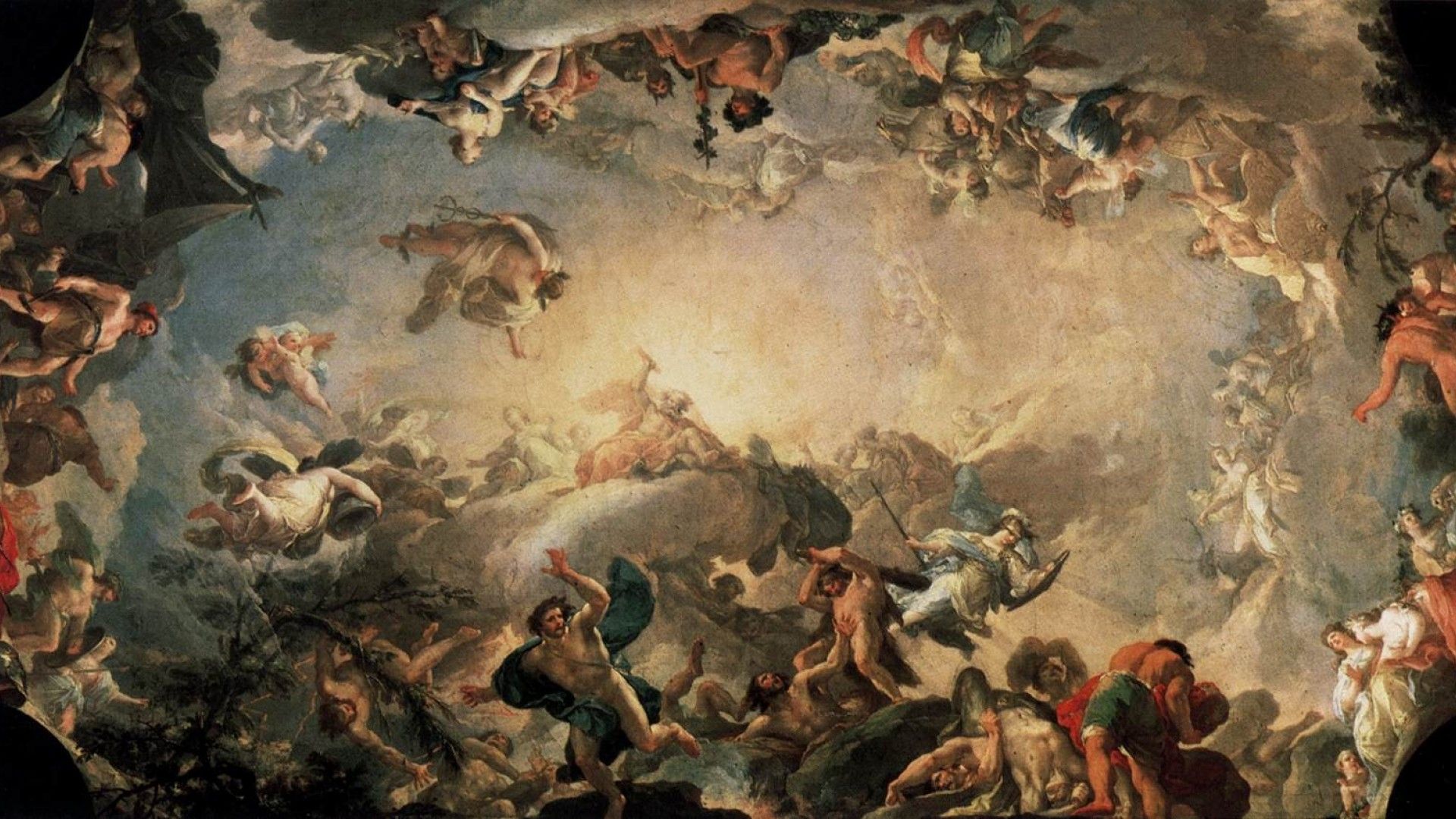
Neoplatonism

The closing period of Greek philosophy is marked in the third century CE. by the establishment of Neoplatonism in Rome.
Its founder was Plotinus of Lycopolis in Egypt (205-270) and its emphasis is a scientific philosophy of religion, in which the doctrine of Plato is fused with the most important elements in the Aristotelian and Stoic systems and with Eastern speculations.
At the summit of existences stands the One or the Good, as the source of all things. It emanates from itself, as if from the reflection of its own being, reason, wherein is contained the infinite store of ideas.
Soul, the copy of the reason, is emanated by and contained in it, as reason is in the One, and, by informing matter in itself non-existence, constitutes bodies whose existence is contained in soul. Nature, therefore, is a whole, endowed with life and soul.
Soul, being chained to matter, longs to escape from the bondage of the body and return to its original source.
In virtue and philosophic thought soul had the power to elevate itself above the reason into a state of ecstasy, where it can behold, or ascend up to, that one good primary Being whom reason cannot know.
To attain this union with the Good, or God, is the true function of humans, to whom the external world should be absolutely indifferent.
Plotinus's most important disciple, the Syrian Porphyry, contented himself with popularizing his master's doctrine. But the school of Iamblichus, a disciple of Porphyry, effected a change in the position of Neoplatonism, which now took up the cause of polytheism against Christianity, and adopted for this purpose every conceivable form of superstition, especially those of the East.
Foiled in the attempt to resuscitate the old beliefs, its supporters then turned with fresh ardor to scientific work, and especially to the study of Plato and Aristotle, in the interpretation of whose works they rendered great services.
The last home of philosophy was at Athens, where Proclus (411-485) sought to reduce to a kind of system the whole mass of philosophic tradition, until in 529 CE, the teaching of philosophy at Athens was forbidden by Justinian.
Plotinus
Our Mobile Application
Check out Our Mobile Application "Ancient Greece Reloaded"


